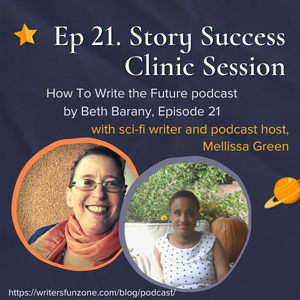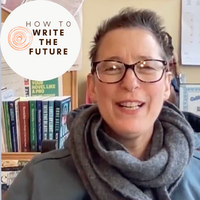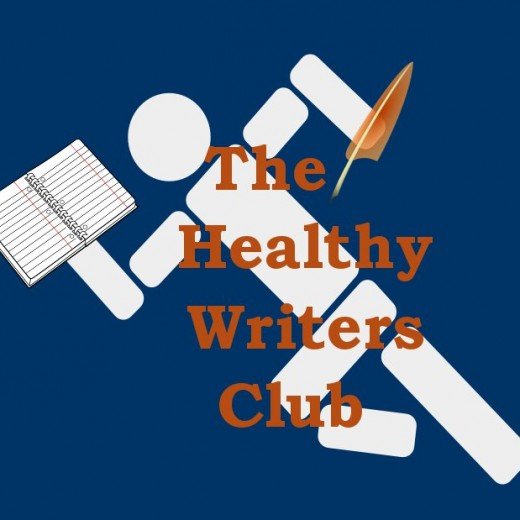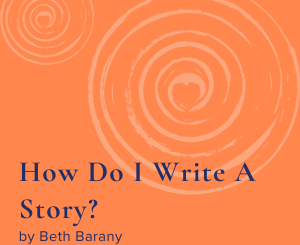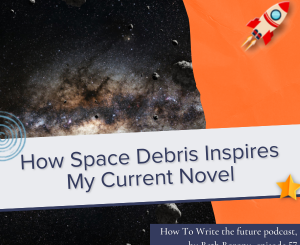Story Success Clinic with Mellissa Green, Sci-Fi Writer
In the new How To Write the Future podcast episode, Beth Barany talks to science fiction writer Mellissa Green and they share the world-building challenges that writers face.
Platforms the podcast is available on include Apple Podcasts | Google Podcasts | Spotify | Buzzsprout | Amazon Music | Podcast Addict | Youtube
ABOUT BETH BARANY
Beth Barany is an award-winning novelist, certified creativity coach for writers, and a workshop facilitator. In addition to her how-to books for writers, Beth has published books in several genres including young adult fantasy, paranormal romance, and science fiction mystery.
Learn more about Beth Barany at these sites:
Author site / Coaching site / School of Fiction / Writer’s Fun Zone blog
RESOURCES
Sign up for the 30-minute Story Success Clinic here:
https://writersfunzone.com/blog/story-success-clinic/
“Uniquely Abled” podcast: https://podcasts.apple.com/us/podcast/uniquely-abled/id1602454133
World Building Resources: https://writersfunzone.com/blog/world-building-resources-for-fiction-writers/
SHOW NOTES
“There’s a deep understanding that your characters have of their world, but how do you convey it in a way that your readers get in on it too?”
In this Story Success Clinic interview, creativity coach and science fiction and fantasy novelist Beth Barany talks to science fiction writer and podcast host, Mellissa Green, where they discuss world-building challenges that writers face.
About Mellissa Green
Mellissa Green is an advocate for digital accessibility. She became blind three months after birth and lost her hearing. With the use of hearing aids and other assistive technology, she supports businesses with a strong interest in making their content accessible for the visually impaired. She has a podcast called Uniquely Abled and writes nonfiction articles, promoting the conversation of digital accessibility. She also writes dark Intergalactic Culinary thrillers that entice readers with unusual flavors and an extraordinary form of elemental magic called material magic. Based in North Carolina, for fun Melissa watches Investigation Discovery shows. Mellissa Green’s site: https://abluegreengalaxy.com
ABOUT THE HOW TO WRITE THE FUTURE PODCAST
The How To Write The Future podcast is for science fiction and fantasy writers who want to write positive futures and successfully bring those stories out into the marketplace. Hosted by Beth Barany, science fiction novelist and creativity coach for writers.
Tips for fiction writers!
This podcast is for you if you have questions like:
- How do I create a believable world for my science fiction story?
- How do figure what’s not working if my story feels flat?
- How do I make my story more interesting and alive?
This podcast is for readers too if you’re at all curious about the future of humanity.
Transcript for Episode 21 Story Success Clinic with Mellissa Green, Sci-fi Writer
World-building Challenges
Beth: 0:00
Hey science fiction and fantasy authors, would you like to get more exposure for your books, and get some support to uncover story ideas, enhance story cohesion, and get some ideas for marketing? Then sign up for my 30-minute Story Success Clinic. Every 30-minute story success clinic is recorded and gets aired as an episode of the How To Write The Future podcast. So sign up today. The link is in the show notes. And now let’s get on with the show.
Beth Barany: 0:50
Hey everyone. Welcome to How to Write the Future Podcast. I’m Beth Barany, your host writer, science fiction writing teacher. Creativity coach, writers, speaker, and teacher. With me today is Mellissa Green for the Story Success Clinic, and I run these clinics every so often, helping writers with their knotty writing, marketing, and publishing questions. And we’re here to help you advance your current work in progress. So I’ll just say hello, Nicole.
Mellissa Green: 1:25
Hey.
Beth Barany: 1:26
Hey, so happy to have you.
Mellissa Green: 1:29
Yep.
Beth Barany: 1:30
Great. Well, in full disclosure, everyone, I work with Nicole with Melissa, and we have been working together for a handful of years as she writes her science fiction stories. So Nicole, can you tell us a little bit about your biggest challenge, that you are bringing to our discussion today?
Mellissa Green: 1:57
Yep.. My biggest challenge is the world building, like some of the material I found that I’ll need to put it in the story, but I don’t want it to be to the point where, because I write, science fiction and, intergalactic culinary thrillers, the characters would know certain things. So I don’t know how to convey whatever I’m trying to convey so that it doesn’t, so that the reader knows, but the character would, Al would already know if you know what I’m trying to say.
Beth Barany: 2:31
Right, right. You’re, you’re talking about there, there’s a deep understanding that your characters have of their world, but how do you convey it in a way that your readers get in on it too? Uh, and yeah. Great. There is a craft term for what you’re talking about. Some people call it exposition, where you pause for a moment in the storytelling and you describe the setting, like the room or you describe, the broader setting, like the town or the hills or the, the relationship of the location your characters are in with other location. Is that where you’re talking about that kind of thing?
Mellissa Green: 3:13
Uh, yeah. one thing that my characters eat is, ginger apples. Now they would know what ginger apples are but. I, you know, I know I would need to be able to describe that to the reader, but I, I don’t want it to. I wanna be able to describe it without it sounding, sounding like the characters don’t have a clue.
Beth Barany: 3:36
Right, Right. Or or sounding like an encyclopedia or, or a teacher. Right. What a great detail. I love that. Ginger apple. So, Every character, your, your, let’s just say this, your point of view character is gonna have an experience eating a ginger apple. So if we can convey that in language that your reader will understand, that might help us. So, let’s start with the physicalness of the ginger apple. How, how big is it? Does it fit in the size of the their palm? Is it a tiny thing that you hold between a finger and a thumb? Tell me.
Mellissa Green: 4:19
I haven’t really flushed out the details, but I’m thinking they are kind of small. and I actually talked to a guy on Twitter that he, he’s like a food scientist, so I was trying to see if some of these fictional foods that I’m creating, if they could actually exist. So like I’m also creating something called a pine orange, which is like a combination of, of pineapple and an orange sort of thing. So the ginger apples are like a combination of ginger and apples, but they’re small apples.
Beth Barany: 4:56
Okay, great. And when you say small, would it be the size of a baseball? Would it be the size, something smaller?
Mellissa Green: 5:07
Well, I mean, they, they do grow, but they, they don’t grow like, like our apples. they, they grow on like bushes so they don’t grow on trees like our apples do.
Beth Barany: 5:21
That’s interesting. So I just wanna pause here and share with everyone what you’re facing. Melissa, is the same exact thing that anybody who invents a world is gonna face. We’re describing things that don’t exist in our current reality. You want to be able to know what it feels like in the hand of your– this ginger apple and what it smells like and what it tastes like. So your questions are so great to investigate. Well, how does it grow and could it even be possible? Ginger is a root. So could it be that the root and the branches are this kind of ginger flavoring and that imbues this fruit with this? Now here’s words you can use in your writing, like, um, tingy, spicy, sweet,
Mellissa Green: 6:12
Yep.
Beth Barany: 6:13
right? So you wanna find the language that we have to describe maybe the taste.
Mellissa Green: 6:19
Mm-hmm.
Beth Barany: 6:20
And in your case, what is the most important information about this ginger apple? Is it its size? Is it its taste? Is it its smell? What would you say?
Mellissa Green: 6:32
I guess it’s smell and taste, so like I want people to know that it’s kind of common. It would be, like my mom is always cooking apples. In fact, she just cooked them last week. The apples that, that, that have gotten to ripe and things like that. So I’m kind of wanting people to know it’s, it’s a common everyday thing that people would, it could be in a basket on, on their, their table. We would call it like a living room, but they don’t call it living room. Cooking areas and eating, eating areas. So they would have like an eating table where they would put, stuff on there. So, so ginger apples would be like in a basket that, that they would put, put on the table, like when we have those fruit bowls and stuff.
Beth Barany: 7:18
Exactly. Great. So what I love about that detail is it’s very relatable. A lot of us have fruit bowls in on our tables or kitchen and can relate to that. So in your case, what it sounds like the most important detail is that it’s a common occurrence. So your main character, your point of view character could come into, uh, someone’s house and notice the basket of ginger apples on the eating table.
Mellissa Green: 7:48
Yeah.
Beth Barany: 7:49
Right. And is there anything else important about this particular detail? Does it come into play beyond just being part of someone’s home?
Mellissa Green: 8:01
What do you mean?
Beth Barany: 8:02
Well, is someone gonna throw it or is someone going to eat it when they’re really hungry? Or is it gonna be given as a gift? Right. Is it more than just part of the setting? Does it get included in the action of the story?
Mellissa Green: 8:17
I suppose I could, I haven’t figured out where, but, Well, I’m thinking like, in, in, in the scenes that I sent you to, to, um, that I re rewrote. I had a, I took it out because it made it too many words, but I did have a scene in there where the foundling hero was sitting there eating some ginger apples, and then the social worker took the basket from her and decided to join in. So they were eating them, but I would have to, I would have to re redo that scene and re try to figure out another way for her to have for, for it to be included. Like, you know, they, gender apples wouldn’t be like thrown like as a weapon or anything. Somebody might throw a biting apple at a person if they were like, you know, outside and being attacked or something.
Beth Barany: 9:09
Great. So in the scene you just described to me, the eating of the apples is something two people do together. Is it kind of like a friendship thing or showing that they’re being Yeah friendly with each other?
Mellissa Green: 9:24
Yeah. Yeah, kind of. I mean, it’s just, something people, people would do. I mean, You could give it to a complete stranger, but, but I guess, I guess, you would have to make sure that they weren’t like allergic to the ginger apples. And because he’s like an intergalactic social worker, people would know, Okay, he’s not allergic to ginger apples, because he travels a lot, throughout the, the galaxy type thing. So everybody kind of knows: okay. I can give him one and he won’t like collapse or anything.
Beth Barany: 9:57
Okay, so would you say just for comparison’s sake, exchanging or eating ginger apples in your story is kind of like having a cup of tea with someone who comes to visit you or offering them a cup of coffee. Is it that kind familiarity? Okay, great. So in your story, in the the point of view character is gonna describe the action of sharing the ginger apples or, or having one offered to them, right? So what are the important elements? Even just to say, Oh, he handed me a customary, um, ginger apple, Oh, this, this harvest season, the apples are particularly spicy. I love spicy. I love them when they’re spicy something, right? So really what you wanna include is the relationship of the character to the ordinary their emotion and their sensory details and that will make it relevant. Now it’s relevant. It’s not stalling the action. it’s not information dropped in from some,
Mellissa Green: 11:01
Right.
Beth Barany: 11:01
Encyclopedic telling. that make sense?
Mellissa Green: 11:07
Yeah, it does. Cuz that’s what I, I wanted. I, I can’t remember where I read this, but I read somewhere, in, in fiction, you don’t wanna include a lot of info dumping. You do want to talk about the world, but you don’t want it to turn into, like you said, in encyclopedia, you wanna include it. You put in a little bit here and a little bit there and, you explain the world that way. You don’t dump it all in one piece.
Beth Barany: 11:30
Exactly, No info dumping. Yeah, absolutely. Great. So I, I love that little detail too, because it’s like partly ordinary and partly, for us, the readers different and, and right there it also signals to the reader that we are not in this world. We are in a different world.
Mellissa Green: 11:54
Yeah.
Beth Barany: 11:55
That’s really fun. The readers of science, fiction and fantasy, and we love that. You wanna signal to the reader in these tiny little details with adjectives and sensory details how what these things are. And the most important thing you can do is show how they’re important in some way to the character. then they become relatable and now you’re not info dumping. So great really good. Really good. And is there any other, any other burning questions that you have about, about writing, publishing, marketing, anything about your science fiction?
Mellissa Green: 12:33
Not at the moment. I did finish “Download Pending”. I guess I’ll have to send you the draft that I, that I finally, I finally finished it, but it is, I feel it’s still in draft form.
Beth Barany: 12:44
That’s fabulous. That’s fabulous. And you know why, while I have you here and just maybe as a. Bonus, shout out mostly to other writers, what would you say, and I’m kind of putting you on the spot here, what would you say is the benefit to you for being in our group coaching program for genre fiction novelists?
Mellissa Green: 13:08
I guess the benefit is just making me write. I did reformat the, the version that I had started with, and now I feel like it’s coming a lot easier. But I feel like if, if you and Trent and everybody wasn’t there, I would still be talking about, Oh, I’m still outlining. I definitely feel I’m being pushed into writing. I finished Camp Mosquito, which who knows how long that would’ve taken if Trent, and you all hadn’t pushed me so.
Beth Barany: 13:37
Yeah. Oh, I’m so glad. I’m so glad. Yeah. The accountability of our group and our having regular meetings and also you have the opportunity to get feedback from us, and the teaching that we do, we talk about these topics also. In our group as we help each other, as we help with editing each other’s work. So great. Well, thank you so much for that. Now, here’s the time in, in the episode where I want you to showcase yourself. Uh, tell us in a sentence or two, what you write and how people can find out about you and say your name again.
Mellissa Green: 14:12
Okay, so my actual name is Nicole Thompson-Andrews. My pen name is Melissa Green and it’s also my business name. I write dark intergalactic culinary thrillers that are very enticing. And I also write, nonfiction dealing with accessibility.
Beth Barany: 14:31
That’s great. So that’s a great segue. I know you also have a podcast too, so can you give us the quick pitch on what your podcast is about?
Mellissa Green: 14:39
The podcast is called Uniquely Abled. A B l e d, and it’s pretty much anywhere you can find your podcast. It’s on Spotify, it’s on Audible, it’s most places. It’s about like disability, but it will get into other topics. I love to read and I’m, and I may or may not read a book about disability, but I may just wanna review it to give my opinion. I like to read, fantasy science fiction business books, books about disabilities, and I, I, I offer my Joe Stein and Victoria Olstein. So I’m planning to review some of their sermons. So it’s kind of a variety show, but, it will mainly focus on disabilities. I’m planning to do some commentary episode drawing, like accessibility and different things.
Beth Barany: 15:35
That’s great. So your show is Uniquely Abled and just a shout out to you and others listening, I’ve listened to some of your interviews and I thought they were excellent. So great job.
Mellissa Green: 15:48
Great.
Beth Barany: 15:48
Well, that brings us to a close for this Story Success Clinic episode. Nicole, I really wanna thank you so much for playing along with us over here in How to Write the Future land, and, thanks everyone for listening, and we will see you in the next episode and, and meet you on the audio land. This is Beth Barany, signing off. Write long and prosper.
Beth: 16:15
Write long and prosper. Science fiction and fantasy sign up for your 30 minute Story Success Clinic and get more exposure for your books.
Loved this episode? Leave us a review and rating here: https://www.buzzsprout.com/2012061
or in your podcast home of choice.
***
CONNECT
Contact Beth: https://writersfunzone.com/blog/podcast/#contact
Email: beth@bethbarany.com
LinkedIn: https://www.linkedin.com/in/bethbarany/
CREDITS
EDITED WITH DESCRIPT: https://www.descript.com?lmref=_w1WCA
MUSIC: Uppbeat.io
DISTRIBUTED BY BUZZSPROUT: https://www.buzzsprout.com/?referrer_id=1994465
***
For more “How To Write the Future” episodes, go here.
If you’d like to invite Beth onto your podcast, drop her a note here.

